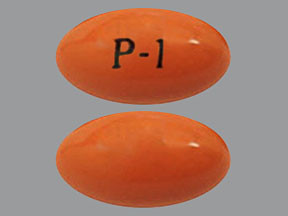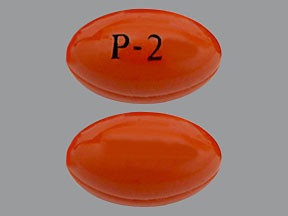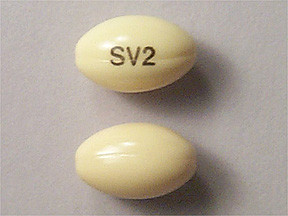PROGESTERONE - ORAL
PHONETIC PRONUNCIATION: (pro-JESS-ter-own)
COMMON BRAND NAME(S): Prometrium
GENERIC NAME(S): progesterone, micronized
Uses
USES: Progesterone is a type of female hormone (progestin). This medication is similar to the progesterone that your body naturally makes and is given to replace the hormone when your body is not making enough of it. In women who are not pregnant and not going through menopause, this medication is used to restore normal menstrual periods that have stopped for several months (amenorrhea). Progesterone is also used as part of combination hormone replacement therapy with estrogens to reduce menopause symptoms (e.g., hot flashes). Progesterone is added to estrogen replacement therapy to reduce the risk of cancer of the uterus. This medication is not for use in children. Progesterone must not be used to test for pregnancy.
How to use PROGESTERONE - ORAL
HOW TO USE: Read the Patient Information Leaflet provided by your pharmacist before you start using this drug and each time you get a refill. If you have any questions, consult your doctor or pharmacist. Take this medication by mouth, usually once a day at bedtime or as directed by your doctor. If you have trouble swallowing the pills, take with a full glass of water while standing up. Follow the dosing schedule carefully. Ask your doctor if you have any questions. The dosage is based on your medical condition and response to therapy. Inform your doctor if your condition does not improve or if it worsens.
Side Effects
Precautions
Interactions
Overdose
Images
Reviews
Faq for PROGESTERONE - ORAL
Progesterone oral medication is primarily used to regulate and restore the hormone balance in women with menstrual irregularities, such as abnormal periods or hormonal imbalances.
Progesterone oral medication works by mimicking the effects of natural progesterone in the body. It helps to maintain the proper balance of estrogen and progesterone hormones, which is crucial for a healthy menstrual cycle.
Common side effects of progesterone oral medication may include dizziness, fatigue, headache, breast tenderness, nausea, and changes in menstrual bleeding patterns. However, it is important to note that individual experiences may vary.
Progesterone oral medication is generally safe to use during pregnancy, especially in cases where there is a history of recurrent miscarriages or other complications. However, it is always best to consult with a healthcare provider before starting any medication during pregnancy.
Progesterone oral medication is typically taken once daily with or without food, as directed by a healthcare provider. It is important to follow the prescribed dosage and schedule to ensure optimal effectiveness and safety.
Yes, progesterone oral medication may interact with certain medications, including some anti-seizure drugs, blood thinners, and certain herbal supplements. It is crucial to inform your healthcare provider about all the medications you are currently taking to avoid potential interactions.
Progesterone oral medication usually starts working within a few days to a week after starting treatment. However, the exact timeframe may vary depending on individual circumstances.
Progesterone oral medication, also known as the mini-pill, can be used as a form of contraception. It is a suitable option for women who cannot take estrogen-based contraceptive pills due to medical reasons or personal preferences.
Long-term effects of taking progesterone oral medication are generally not a concern when used as directed by a healthcare provider. However, it is essential to discuss any concerns or potential risks with a medical professional.
Warning
WARNING: Progesterone is sometimes used with another medication (a type of estrogen) as combination hormone replacement therapy (HRT) in women after menopause. Combination HRT can rarely cause very serious side effects such as heart disease (e.g., heart attacks), stroke, serious blood clots (e.g., in the lungs and legs), dementia, and breast cancer. Some of these risks appear to depend on the length of treatment and other factors. Therefore, combination HRT should be used for the shortest possible length of time at the lowest effective dose so you can obtain the benefits and minimize the chance of serious side effects from long-term treatment. Combination HRT should not be used to prevent heart disease or dementia. Discuss the risks and benefits of treatment and your personal health history with your doctor. If you take combination HRT, check with your doctor regularly (e.g., every 3-6 months) to see if you still need to take it. If you use this medication for an extended period, you should have a complete physical exam at regular intervals (e.g., once a year) or as directed by your doctor. See Notes section.
Disclaimer
IMPORTANT: HOW TO USE THIS INFORMATION: This is a summary and does NOT have all possible information about this product. This information does not assure that this product is safe, effective, or appropriate for you. This information is not individual medical advice and does not substitute for the advice of your health care professional. Always ask your health care professional for complete information about this product and your specific health needs.




No Reviews Yet